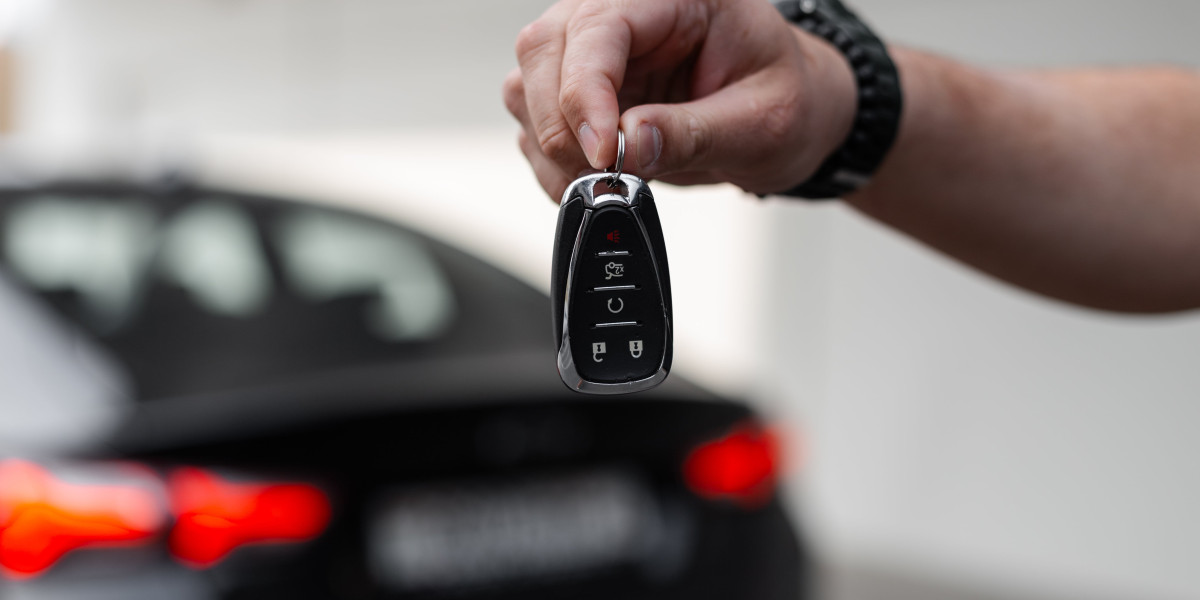
Mobility Scooters Near Me: A Comprehensive Guide to Accessible Transportation
For individuals with mobility concerns, particularly older adults and those recovering from injuries or surgical treatments, preserving independence and mobility is important. Mobility scooters have actually emerged as an essential option, using a dependable and comfortable ways of transport for those who find strolling tough. However, discovering the right mobility scooter and understanding the choices readily available can be frustrating. This guide aims to simplify the process of finding and selecting a mobility scooter near you, making sure that users can with confidence navigate their every day lives.
What is a Mobility Scooter?
A mobility scooter is a motorized automobile developed to help individuals with minimal mobility. Usually, these scooters include a comfortable seat, handlebars for steering, and a battery-powered motor that moves the automobile. They are best for both indoor and outdoor usage, making it possible for users to travel longer ranges without tiredness. Mobility scooters can be found in a range of sizes and designs, each accommodating different needs and environments.
Types of Mobility Scooters
Before diving into the process of discovering a mobility scooter near you, it's vital to understand the various types offered:
1. Three-Wheel Scooters
- Pros: More maneuverable, particularly in tight areas.
- Cons: Less stable on irregular surface.
2. Four-Wheel Scooters
- Pros: More steady, much better matched for outdoor use and uneven surfaces.
- Cons: Larger turning radius, may need more space.
3. Portable Scooters
- Pros: Lightweight and easy to dismantle for transport.
- Cons: May have limited battery life and speed.
4. Sturdy Scooters
- Pros: Built to support heavier users and carry more weight.
- Cons: Larger and less portable.
5. Standing Scooters
- Pros: Ideal for users who choose standing or have limited seating alternatives.
- Cons: May not be as comfy for longer trips.
How to Find a Mobility Scooter Near You
1. Local Retail Stores
- Pros: Ability to test the scooter before acquiring, instant schedule.
- Cons: Limited choice, higher rates.
- Tips: Visit stores like Walmart, Target, or local medical supply stores. Ask if they provide test drives or have designs on screen.
2. Online Shops
- Pros: Wide choice, competitive prices, in-depth item evaluations.
- Cons: Can not check the scooter face to face, possible shipping hold-ups.
- Tips: Websites like Amazon, Alibaba, and specialized mobility scooter retailers provide extensive options. Read reviews and compare features before making a purchase.
3. Rental Services
- Pros: Ideal for short-term requirements, no long-lasting commitment.
- Cons: Costly gradually, limited accessibility in some areas.
- Tips: Check with regional medical devices rental companies or online platforms like RentACenter. Guarantee the rental contract covers maintenance and assistance.
4. Second-Hand Markets
- Pros: More budget-friendly, often well-maintained.
- Cons: Risk of buying a faulty item, absence of guarantee.
- Tips: Explore classifieds, Facebook Marketplace, and specialized second-hand mobility equipment stores. Check the scooter completely and ask for maintenance records.
5. Neighborhood Resources
- Pros: Local assistance and suggestions, capacity for subsidies or grants.
- Cons: Availability might differ by place.
- Tips: Contact regional senior centers, disability organizations, and community health centers. They frequently know on local resources and programs.
Elements to Consider When Choosing a Mobility Scooter
1. User Needs
- Mobility Level: Assess the user's capability to stroll, move, and manage the scooter.
- Weight Capacity: Ensure the scooter can support the user's weight.
- Indoor/Outdoor Use: Determine if the scooter will be used mostly inside your home, outdoors, or both.
2. Scooter Features
- Battery Life: Longer battery life is important for extended use.
- Speed and Range: Consider the speed and range needed for daily activities.
- Portability: If travel is a top priority, search for lightweight and collapsible choices.
- Seating: Comfortable and adjustable seating is essential for extended use.
- Storage: Check for storage alternatives for personal products.
3. Budget plan
- Cost: Mobility scooters can range from a few hundred to several thousand dollars.
- Funding Options: Explore funding alternatives, insurance coverage, and federal government help programs.
4. Upkeep and Support
- Guarantee: Ensure the scooter comes with a thorough warranty.
- Service Centers: Check the accessibility of local service centers for repair and maintenance.
- Customer Support: Look for makers with good customer support and user resources.
FAQs About Mobility Scooters
Q: Are mobility scooters easy to use?
- A: Yes, most mobility scooters are designed with easy to use controls. They typically have basic steering, speed controls, and braking systems. Nevertheless, it's constantly a good idea to practice in a regulated environment before using them in public.
Q: Can I use a mobility scooter inside your home?
- A: Absolutely! Numerous mobility scooters are developed for both indoor and outdoor usage. They are particularly useful in big homes or industrial structures where fars away require to be covered.
Q: How much does a mobility scooter expense?
- A: The cost of a mobility scooter can differ commonly depending upon the type, brand, and functions. Standard models can start around ₤ 300, while more advanced and heavy-duty scooters can cost several thousand dollars. Inspect for financing alternatives and government assistance to make it more cost effective.
Q: Do I need a prescription to buy a mobility scooter?
- A: No, a prescription is not required to purchase a mobility scooter. However, seeking advice from a health care supplier can help figure out the very best type of scooter for your specific needs.
Q: Can I get insurance coverage for a mobility scooter?
- A: Some medical insurance policies, consisting of Medicare and Medicaid, may cover the expense of a mobility scooter under particular conditions. Talk to your insurance coverage service provider for information.
Q: How do I preserve my mobility scooter?
- A: Regular upkeep is crucial to keeping your mobility scooter in excellent working condition. This includes:
- Charging the Battery: Follow the maker's guidelines for battery charging.
- Inspecting Tires: Ensure tires are properly pumped up and in great condition.
- Checking Brakes and Lights: Regularly inspect the brakes and lights for appropriate performance.
- Cleaning: Wipe down the scooter and keep it clean to prevent deterioration and wear.
Top Mobility Scooter Brands
1. Pride Mobility
- Pros: Known for high-quality and long lasting scooters.
- Cons: Can be pricier than some other brands.
- Designs: Pride Go-Go Elite, Voyager 4-Wheel Scooter.
2. Golden Technologies
- Pros: Offers a wide variety of designs, consisting of portable and durable scooters.
- Cons: Some designs may have restricted speed and range.
- Models: Golden Travelmate 3, Golden Companion 4-Wheel.
3. Rascal Mobility scooters near Me
- Pros: Affordable and reputable options.
- Cons: Limited customer support in some areas.
- Models: Rascal 20D, Rascal 40.
4. Drive Devilbiss Healthcare
- Pros: Innovative functions and easy to use styles.
- Cons: Higher-end designs can be pricey.
- Models: Drive GX Warrior 4-Wheel Scooter, Drive Medical Roadster 3.
5. Benefit Mobility
- Pros: Versatile and budget-friendly models.
- Cons: Some users report less sturdiness compared to top-tier brand names.
- Designs: Merit Heavy Duty 3 Wheel Scooter, Merit 4 Wheel Foldable Scooter.
Tips for Safe Use of Mobility Scooters
1. Read the Manual
- Why: Understanding the operation and maintenance of your scooter is essential for safety.
- How: Make sure to check out the user handbook thoroughly before using the scooter.
2. Use Protective Gear
- Why: Protective equipment can lower the danger of injury in case of an accident.
- How: Wear a helmet, gloves, and proper shoes.
3. Observe Traffic Rules
- Why: Following traffic guidelines guarantees safe and responsible use of your scooter.
- How: Use designated bike lanes or walkways, and comply with traffic indications and signals.
4. Regular Maintenance
- Why: Regular upkeep keeps your scooter in ideal condition and extends its life-span.
- How: Check the battery, tires, brakes, and lights regularly. Set up professional upkeep as required.
5. Stay Visible
- Why: Visibility is important, particularly during low-light conditions.
- How: Use reflective equipment, lights, and flags to increase exposure.
Finding the right mobility scooter near you is a crucial step towards maintaining self-reliance and enhancing quality of life. By understanding the different kinds of scooters, considering your specific needs, and checking out various sources, you can make an informed decision. Whether you choose a local store, an online seller, or a rental service, the secret is to discover a scooter that satisfies your requirements and fits your budget. With the right mobility scooter, you can delight in the freedom to move with ease and self-confidence.
Additional Resources
- Regional Senior Centers: Often have information on mobility scooters and local resources.
- Disability Organizations: Provide insights and support for people with mobility concerns.
- Federal Government Assistance Programs: Check for grants or subsidies that can help cover the cost.
- Online Reviews and Forums: Read user experiences and ask concerns in mobility scooter online forums.
By putting in the time to research and choose the best mobility scooter for your needs, you can delight in a safer, more comfortable, and more independent lifestyle.



